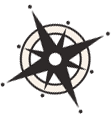Climate adaptation means taking action to prepare for and adjust to the current and projected impacts of climate change. The goal of adaptation is to reduce risks from the harmful effects of climate change and take advantage of any beneficial opportunities. In the Great Lakes region, climate change is likely to cause more extreme rainfall events and flooding, rising temperatures, declining ice cover, and periods of extreme high and low water levels in the lakes. These resources provide information about the risks faced by Great Lakes communities and strategies to adapt to the impacts of climate change in this region.
Getting Started

This resource hub from the EPA provides access to information and tools to learn more about climate adaptation strategies in a variety of sectors.
Climate Changes along the Great Lakes

This web-based tool creates visuals that capture lake level changes that range from six feet above to six feet below historical long-term average water levels in the Great Lakes. Potential shoreline and coastal impacts are also provided.
Assess Impacts on Communities

This manual provides step-by-step instructions on how to estimate risk to Great Lakes coastal property from extreme lake levels, storms, and erosion.

Wisconsin Shoreline Inventory and Oblique Photo Viewer
Association of State Floodplain Managers
This map shows viewers historic photos of the coast, assessments of bluff and shoreline conditions, and measurements of historic bluff and shoreline recession in a web-based, interactive map of Wisconsin coastal data.
Adaptation Strategies

A Practitioners Guide to Implementing the Steps to Resilience
NOAA and the U.S. Climate Resilience Toolkit
This guidebook offers a set of procedures to accompany each phase of the Steps to Resilience so that professionals may compare their efforts and so that progress toward climate resilience may be evaluated on a national scale even while communities work toward their individual goals.

This publication contains policy, permitting, funding, and collaboration options that local governments can pursue to improve their ability to adapt to changing water levels and other coastal hazards.

This guide describes different types of nature-based shoreline techniques that are suitable for the Great Lakes alongside case study examples.

Strategies for Adapting Great Lakes Coastal Ecosystems to Climate Change
U.S. Department of Agriculture Climate Hub
This resource presents a menu of adaptation actions to help practitioners move from general concepts to tangible, targeted adaptation tactics for their system.

Dibaginjigaadeg Anishinaabe Ezhitwaad: A Tribal Climate Adaptation Menu
Great Lakes Indian Fish and Wildlife Commission
This resource is an extensive collection of climate change adaptation actions for natural resources management, organized into tiers of general and more specific ideas. It also includes guiding principles to support working with tribal communities.
Networks Focused on Climate Adaptation

Coastal Hazards of Superior Community of Practice (CHAOS)
NOAA Partners in Minnesota and Wisconsin
This group provides a platform for engaging local community leaders, managers, researchers, and communicators with a shared concern about coastal hazards in the western Lake Superior region.

Collaborative Action for Lake Michigan Coastal Resilience (CALM)
Wisconsin Coastal Management Program and partners
This network works to sustain, strengthen, and connect existing regional coastal resilience networks to expand collaboration across Wisconsin’s entire Lake Michigan coastline.

Organizations and Networks in Coastal Resilience
Wisconsin Coastal Management Program and partners
This page collects information about many organizations working on coastal resilience and climate adaptation related to the Great Lakes.
